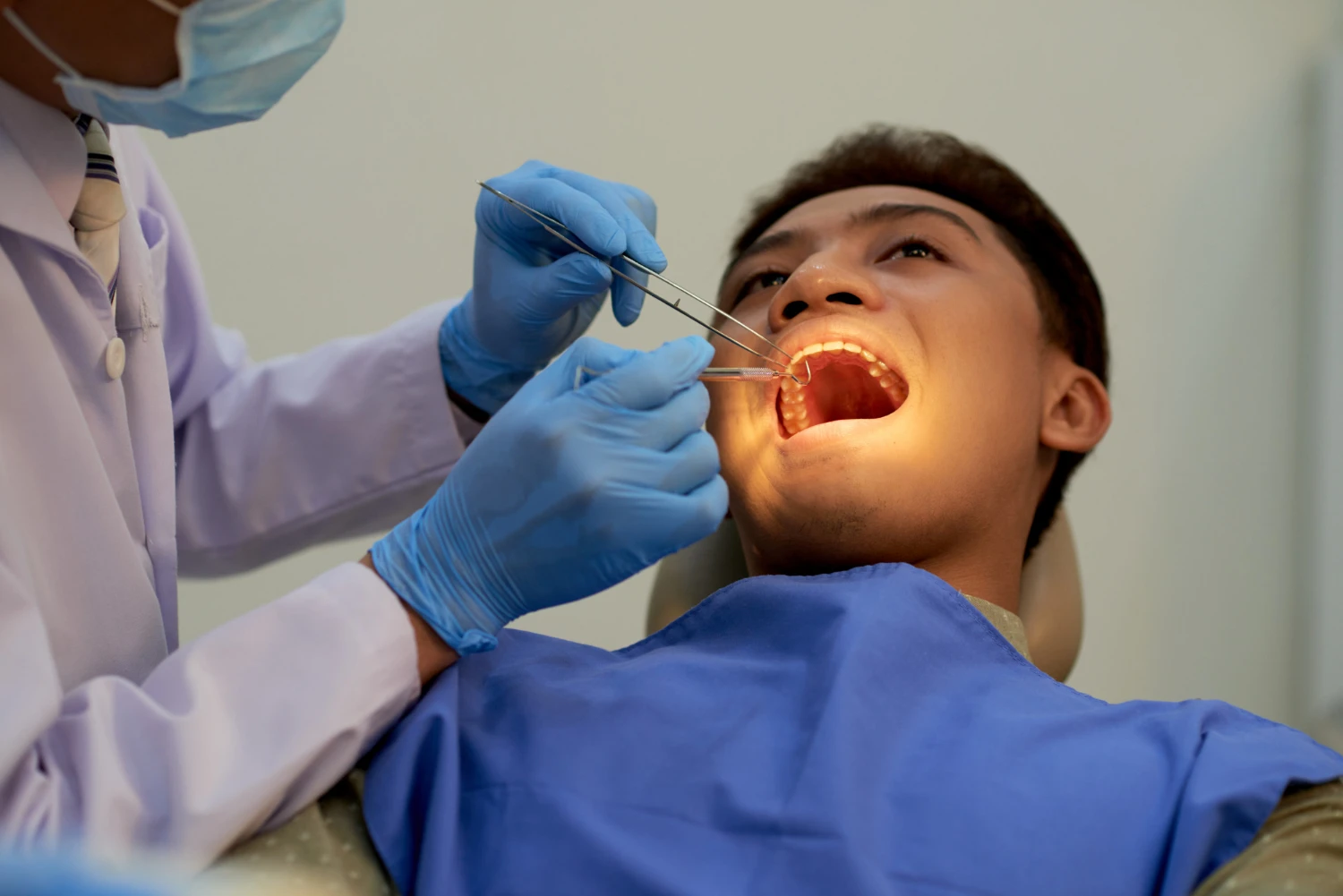Contrary to the name, wisdom teeth do not impart much wisdom to the beholder. Rather, many times they are quite undesirable effects that need to be rid of.
Wisdom teeth, also known as third molars, are the ones that erupt right at the back of the mouth. These late bloomers typically come in during the late teens to early 20s. Although not a hindrance, they are commonly removed owing to lack of space and crowding of teeth. They are also more prone to decay and infections because of their placement, making brushing difficult.
Wisdom teeth can be extracted either before or after eruption, and you can get this procedure done at Dental Hub. Our tooth experts will check out these troublemakers and let you know if they need to go or not.
Frequently Asked Questions
Why do wisdom teeth need to be extracted?
Wisdom teeth, or third molars, often need to be extracted if they cause problems or are likely to do so in the future. Common reasons for extraction include impaction (when the tooth is trapped in the jawbone or gums), crowding of other teeth, risk of infection, tooth decay, or damage to neighboring teeth. Removing problematic wisdom teeth can prevent these issues from worsening.
What can I expect during the wisdom tooth extraction procedure?
Wisdom tooth extraction is typically an outpatient procedure performed by a dentist or oral surgeon. The area around the tooth will be numbed with a local anesthetic, and sedation may be used to help you relax. The dentist will then remove the tooth, which may involve making an incision in the gum if the tooth is impacted. The procedure usually takes about 45 minutes to an hour, and you’ll receive aftercare instructions for recovery.
How long does it take to recover from wisdom tooth extraction?
Recovery from wisdom tooth extraction usually takes about one to two weeks. During the first few days, you may experience swelling, bruising, and discomfort, which can be managed with prescribed pain relievers, ice packs, and rest. It’s important to follow your dentist’s aftercare instructions, such as eating soft foods, avoiding smoking, and keeping the extraction site clean, to ensure a smooth recovery.
What are the potential risks or complications of wisdom tooth extraction?
While wisdom tooth extraction is generally safe, there are some potential risks and complications, including infection, dry socket (when the blood clot at the extraction site is dislodged), nerve injury, and excessive bleeding. However, these complications are rare, and following your dentist’s aftercare instructions can help minimize the risk.
How can I prepare for wisdom tooth extraction?
To prepare for wisdom tooth extraction, your dentist or oral surgeon will provide you with specific instructions, such as fasting if sedation will be used. Arrange for someone to drive you home after the procedure, as you may feel groggy from the anesthesia. It’s also a good idea to stock up on soft foods and pain relievers, and plan for a few days of rest to aid in your recovery.

